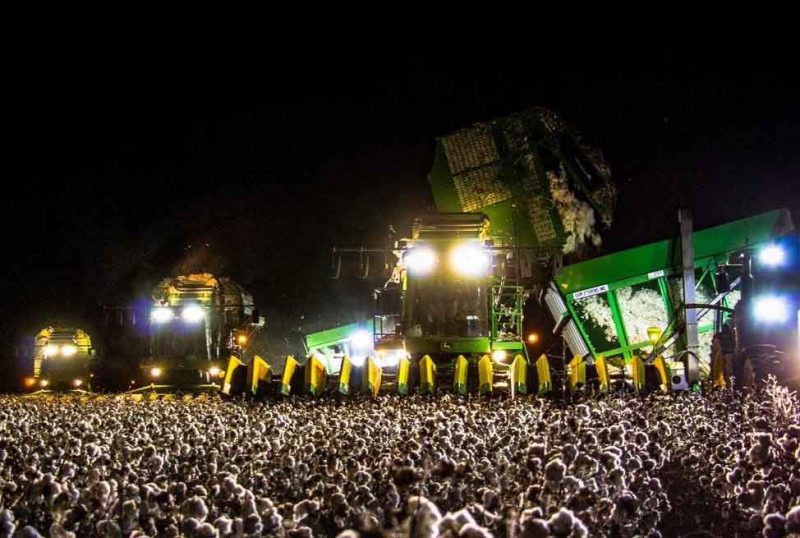Conservatives Should Stop Complaining About Automation
Conservatism means that we conserve the best of the past. That translates into us measuring the results of past actions according to results in reality, and choosing which were best according to transcendentals (good, excellent, beautiful, true). Most conservatives confuse this with “making things like they were before.”
That leads to a problem in that we are then aiming for a moving target. Do we preserve the last generation? If so, in Leftist times, we become Leftists. Do we aim for far ago? Then we are faced with the difficulty of integrating any useful developments into a previous model.
Others confuse conservatism with an opposition to technology. Our view toward anything new is skepticism until its value is proven and its disadvantages are known. This means that we are accepting of technology, within reason. Still many think we desire mud huts and subsistence hunter-gatherer existence.
Many of our elected leaders, who make their money by drawing attention to themselves and then offering easy answers that people like, have taken aim at automation. Conservatives worry that it will displace jobs and cause an economic apocalypse, and so they promise to take a strong stand against it.
This proves to be mere theater. From what we know of technology, any advantageous technology is quickly adopted, and sometimes the nations that are willing to endure disadvantages — pollution, social disorder, poverty, upheaval — get ahead of the others because the advantages outweigh the disadvantages.
Like it or not, automation is coming, and it will eliminate some jobs and maybe open up others. The first real warning shot here was the massive success of an automated coffee kiosk in notoriously princessy Austin, TX:
The machine has been programmed to measure, grind and tamp the coffee according to each specific order, then brew it with high-temperature water, just like a barista. The system’s software also controls steaming the milk to produce a variety of textures, from light to very frothy. “It’s the taste that matters to us,” adds Studor. “We sell the coffee, not the machine.”
Briggo allows you to create an account to personalize your favorite beverages and save them for future orders, which can be placed via mobile device, Internet or at the kiosk itself. When your order is ready, you receive a text message a few minutes in advance for pick-up. This is great news for all those annoyingly rude people who can’t seem to get their face out of their phones, even when ordering coffee at the counter.
“Imagine being at the airport in Austin and ordering your vanilla-caramel latte just the way you like it. You land in Chicago later, and while getting to your next gate, you go to the Briggo kiosk and get another one exactly like the one you had in Austin,” says Studor, who emphasizes the convenience aspect of Briggo and its appeal to a tech-savvy, social media-geared public.
This is not just a replacement for entry-level workers, but an improvement. A service that is better and cheaper will replace its previous iteration by the action of the market, or rather of the consumers, who will flock to it unless they have a mass cultural inclination toward having their coffee touched by human hands.
Naturally, new jobs are created: attendants monitor these kiosks and people are required to stock them. However, this condition will not last forever. Even if self-driving trucks do not materialize soon, as it seems likely will be the case, automatic stocking and monitoring are in the future.
Consider the success of Patriot Fueling, whose 24-hour service stations are entirely automated, with humans appearing only to clean up and restock, and of course to monitor the closed-circuit security system:
In the times that we live in, everyone is busy, they are on the move, they want to get their fuel, pay and be on their way. We don’t want to have a lot of human interaction. We don’t want to be treated rudely by a cashier who does not want to be at work.
Perhaps humanity has finally found a solution to the perpetual problem of underclass revolt. When constructive people create a working society, labor that does simple repetitive tasks is required, and this produces an underclass that true to its lower intelligence, breeds rapidly and eventually overthrows the people who are more intelligent.
Even without revolt, the underclass creates problems. Disgruntled workers do poor jobs or sabotage output; unions collapse whole industries and lead to offshoring; high turnover in entry-level jobs creates slowdowns and unnecessary costs passed on to society at large.
Conservatives should embrace a future with fewer people of this nature. Let the machines do the repetitive work, and those who are not very useful move on to subsistence living in the third world, as is appropriate to their intelligence level regardless of race or ethnicity.
Future human societies will be bloodless about this. Instead of being caught in the perpetual pity/victimhood cycle that comes from assuming that the underdog, being equal, is always the victim of a scapegoat and therefore right, we can acknowledge the differing contribution potential of different people.
Tags: automation, entry-level, inequality, minimum wage










